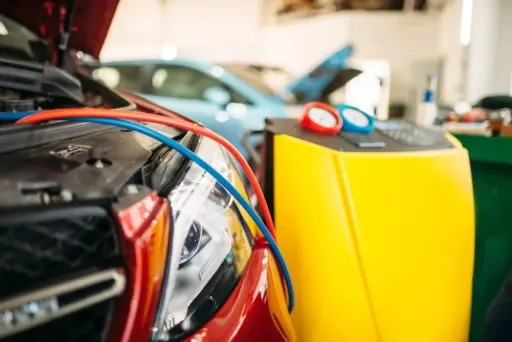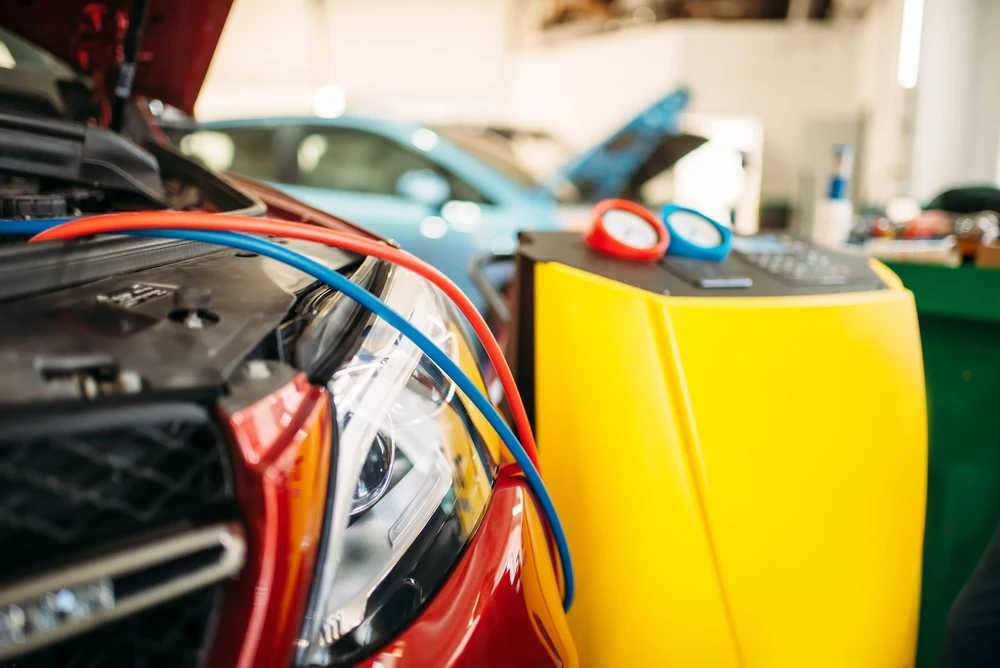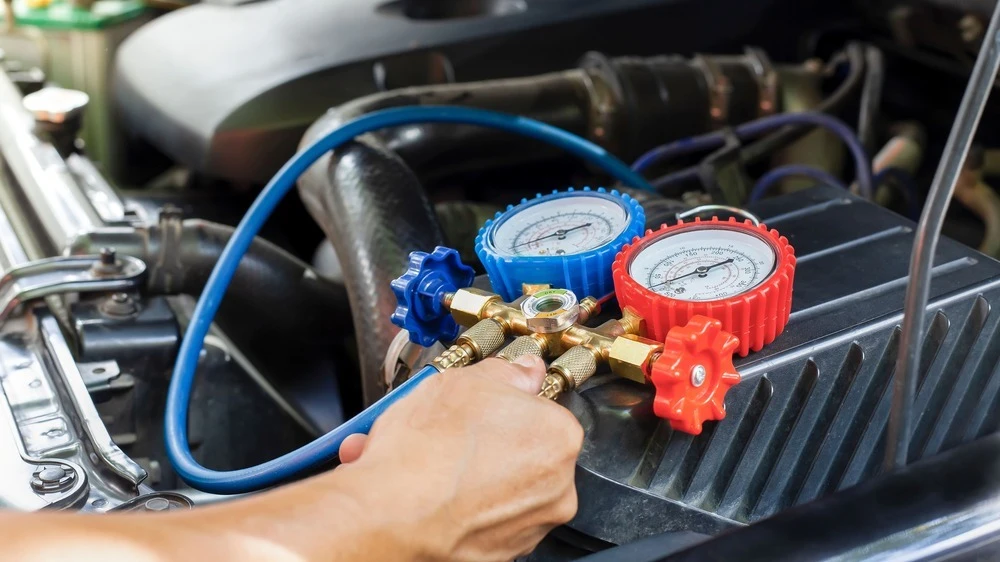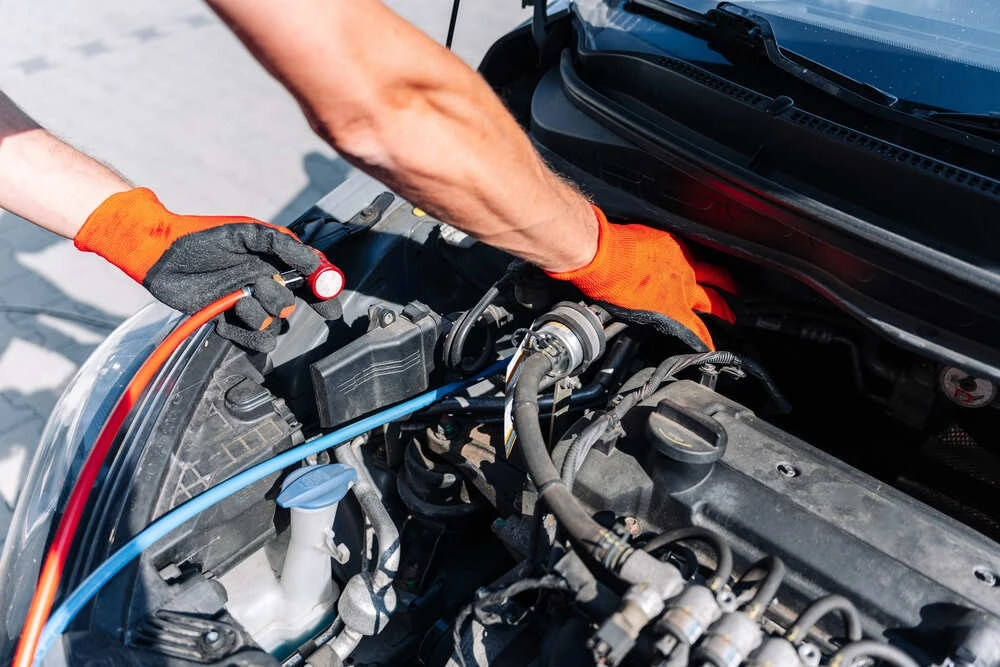Car AC systems are essential for comfort in Dubai’s extreme heat. Over time, the refrigerant gas in your car’s air conditioner can leak or lose effectiveness, reducing cooling performance. Maintaining your AC means knowing when to refill the refrigerant, which type of refrigerant your vehicle uses, and how much a refill typically costs.
In this article, we cover the prices for car AC gas refills in Dubai, the common refrigerants used (and why they matter), and the timing for AC gas top-ups. With this knowledge, you can keep your car’s AC blowing cold air all year round.
Car AC Gas Refill Costs in Dubai
Car AC gas refill in Dubai https://golden-horse.ae/services/gas-filling-car-ac/ typically costs between AED 150 and 300 for most cars. The exact price can fall lower or higher depending on several factors — a small economy car or basic service might be at the low end, while a larger or high-end vehicle (especially one using the latest refrigerant) could exceed AED 500.
Factors that influence AC refill pricing include:
- Refrigerant type: Cars with R-134a (older refrigerant) cost less to refill than models requiring R-1234yf (newer, more expensive gas).
- Vehicle size: Bigger vehicles (like SUVs or those with dual AC systems) need more refrigerant, so the service will cost more.
- Service provider: Dealerships typically charge higher rates, while independent garages usually offer more affordable pricing.
- Service scope: A quick gas top-up is cheaper than a full AC service that evacuates old refrigerant, checks for leaks, and refills anew.
In general, expect to pay a few hundred dirhams for a car’s AC gas refill. It’s wise to confirm the price in advance, especially if your vehicle uses the pricier R-1234yf refrigerant.
Understanding Refrigerants Used in Car AC Systems
Different cars require different AC refrigerant gases, so using the correct type is crucial. The main types of car AC refrigerant are:
- R-134a: The standard refrigerant in most vehicles from the mid-1990s through the 2010s. R-134a replaced the older R-12 Freon and is widely available and inexpensive.
- R-1234yf: A newer refrigerant introduced in the 2010s with much lower environmental impact. It is becoming the norm in recent models, but is significantly more costly than R-134a — so refilling a car that uses R-1234yf will be more expensive.
- R-12 (Freon): An older refrigerant used in cars built before 1995. R-12 was banned for harming the ozone layer and is no longer used. Any classic car that once used R-12 must be retrofitted to use R-134a.
Always refill with the refrigerant type specified for your vehicle. Using the wrong type or mixing refrigerants can damage the AC system. Professional AC technicians will make sure the correct gas is used and handle it safely.
Timing: When to Refill Your Car’s AC Gas
Car AC refrigerant circulates in a closed system, so ideally it never needs replacement. However, small leaks or gradual seepage can occur, especially in Dubai’s harsh climate, where the AC works extra hard. This means you may need to top up the gas every few years to keep the air blowing cold.
Many drivers in Dubai get an AC gas refill about every 2–3 years. Rather than following a strict schedule, watch for signs that your AC may need a recharge:
- Weak cooling: The air from the vents isn’t as cold as before, or it takes too long to cool down the cabin.
- Hissing or leaks: A noticeable hissing sound (especially right after shutting off the engine) or oily residue on AC components can indicate a refrigerant leak.
Don’t wait until the AC stops cooling entirely, as that can strain the compressor. It’s best to fix refrigerant issues early — a professional AC gas refill is a quick service (often under an hour) that will get your cool air back without much downtime.
Comparison of R-134a and R-1234yf Refrigerants
The table below compares key aspects of the two primary refrigerant types (R-134a and R-1234yf) used in modern car AC systems. Understanding their differences helps explain the cost and service variations for AC gas refills in Dubai:
Aspect | R-134a (Older Standard) | R-1234yf (Newer Standard) |
| Usage period | ~1995–2016 (used in most cars of 2000s) | ~2015 onward (used in latest models) |
| Environmental impact | High GWP (higher emissions) | Ultra-low GWP (more climate-friendly) |
| Flammability | Not flammable | Mildly flammable (safe in vehicle systems) |
| Refrigerant cost | Low cost (cheaper gas) | High cost (several times more expensive) |
| Typical refill cost** | Lower (approx. AED 150–300 for average car) | Higher (approx. AED 500–900 for same car) |
| Availability (Dubai) | Very common (widely available) | Growing (available at most major service centers) |
Note: GWP = Global Warming Potential. Cost ranges above are approximate for a standard fill; actual prices vary by vehicle and service provider. Newer cars that use R-1234yf often incur higher AC service costs due to the refrigerant’s price.
Maintaining Peak AC Performance Year-Round
Keeping your car’s AC in top shape is crucial for comfort in Dubai’s climate. By understanding the prices, refrigerants, and timing for car AC gas refills, you can make informed decisions and avoid discomfort. In summary, expect to pay a few hundred dirhams for a refill, ensure you use the correct refrigerant type for your vehicle, and plan to check or service the AC every couple of years (or whenever performance drops).
Taking a proactive approach — refilling the AC gas before peak summer heat and fixing any leaks promptly — will help your car’s air conditioning run optimally. With the right maintenance, you’ll stay cool on Dubai’s roads year-round. Ultimately, a bit of preventive care for your car’s AC goes a long way toward keeping you comfortable even on the hottest days.









